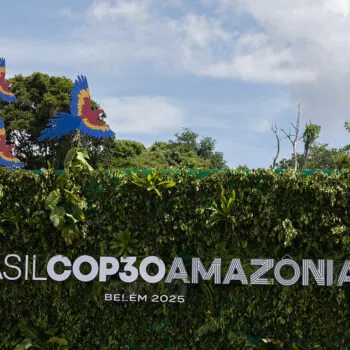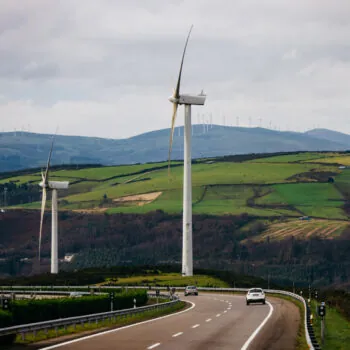Governments around the world are currently preparing their submissions or have submitted their commitments requested by the UNFCCC as part of the process building up to a new legally binding agreement in Paris 2015. These commitments in the form of Intended Nationally Determined Contributions (INDCs) will present the post-2020 GHG emission reductions actions and targets in the context of their national priorities and circumstances. To ensure these carbon related targets have potential to avoid dangerous climate change levels and stay under the 2C scenario, climate finance needs to be mobilised at increasing pace and scale.
Since 2012 E3G has been pioneering the need for countries to develop National Finance Strategies (NFS) that identify financing options and pathways that deploy climate finance most effectively to mobilise public and private sources in the short, medium and long term. In general, working towards a finance strategy will enhance country ownership and ensure effective use of international resources. In this context E3G is working in collaboration with Mexico, Chile and Colombia on strategic approaches for financing climate and sustainable development objectives.
Mobilising the private sector for scaled up investment requires three main elements for investment to flourish: 1) existence of market opportunities 2) a reasonable return on investment and 3) limited or acceptable levels of risk regarding the technology, currency, capacity constraints and policy and regulatory environments. Through embarking on an NFS – that is developed in partnership with stakeholders, particularly the domestic private sector can provide a strong signal to the finance and private actors on the governments' level of commitment to get these 3 elements in place.
The public sector can offer policy incentives and regulations along with finance risk-mitigation instruments through development banks, special funds or others in the form of guarantees, concessional loans, grants and equity in order to mitigate risks for private sector investors. Generally, E3G has concluded that there is no single way of designing a successful incentive scheme or financial instrument, the use of public resources should be designed to ensure the most appropriate allocation of risk between actors.[1]
Mexico
In Mexico our direct project partners for the NFS are the Ministry of Environment (SEMARNAT) who are also leading on Mexico’s Climate Change Fund and The National Institute of Environment and Climate Change (INECC) which developed Mexico’s INDCs. Inputs from other actors will be key to this process.
The first mission took place at the end of April with the kick off meeting. As a first step we are undertaking a mapping of the current financial ecosystem considering in particular potential gaps between demand and supply from both public and private sector actors. This mapping includes policies and regulations from the public side eg. renewable energy targets and INDCs, and public financial resources towards low-carbon sectors. From the private side it includes project developers and clean tech startups requiring finance and the barriers and opportunities faced by commercial financing institutions to scale up their investments and market share on low-carbon sectors.
Engaging with key actors will ensure the right pathways and policies on the NFS are being identified which will provide sustainability for its implementation in the long term. The next mission in July will gather further insights from the Mexican Banking Association, project developers, development and commercial banks, insurers, investors, NGOs and other relevant ministries.
Chile
In Chile we are identifying options for their NFS to support low-carbon and climate resilient development in partnership with the Ministries of Environment and Finance. Here as well the role of private sector actors has been identified as key for the NFS design and for ensuring scale of resources available in the long run.
The kick off meeting took place this month and a stakeholder group will be consolidated with the participation of several ministries, representatives from commercial banks, project developers and investors. A mission in Chile will take place in August where initial results of the ecosystem and possible pathways will be shared with the high level stakeholder group. We are expecting to have the final version of their INDCs by then.
Colombia
Colombia is also looking into strategic financing options on climate within the broader context of country priorities and sustainable development. Following E3G’s initial assessment of design options for a national climate change fund and the study on coordination for climate finance[2] in the country, we are now supporting the Government of Colombia in the development of a Sustainable Rural Development initiative that brings in the climate agenda.
Two scoping missions have taken place to identify initial inputs across government and development agencies. This effort will need to have the active participation of different ministries for effective coordination and alignment of national and international support in order to achieve a transformational impact with this initiative.
Defining and building strategic approaches for financing climate and sustainable development in these countries is a dynamic and iterative process involving multiple decisions, ongoing dialogue with different stakeholders and capturing learning. This engagement process is fundamental to test findings and incorporate the right type of policies in the short, medium and long term with a common action plan for its implementation. Each NFS process is specific to countries’ circumstances yet they amplify the voice of progressive countries in the international space. Capturing learning of this process can have positive feedback for their INDCs by potentially increasing their ambition between 2015 -2020 and ensuring the achievement and implementation of their commitments. Other countries can also follow suit and benefit by sharing experiences on how to address common challenges. These processes will also bridge the gap between the public and private financial sectors ensuring better articulation of their roles and providing a long term signal that will ultimately result in increased level of investment and market development for low-carbon sectors.
[1] https://e3g.org/docs/E3G_Designing_smart_green_finance_incentive_schemes_FINAL.pdf; https://e3g.org/docs/E3G_Strategic_national_approaches_to_climate_finance_FINAL.pdf
[2] https://www.odi.org/publications/8764-coordination-climate-finance-colombia


